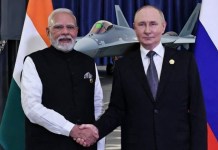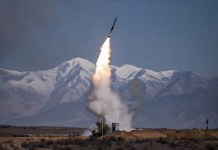The International Monetary Fund (IMF) has left Pakistan in a very tricky situation i.e. either to cut down its defence budget or reduce development expenditure. Pakistan has been facing a severe economic crisis but continues to boost defence spendings to ward-off any potential threat from arch-rival, India.
After Saudi, UAE Plegdes $3 Billion Support To Pakistan Totalling $6 Billion From The Middle East
The budget deficit has to be curtailed within a range of 4 to 5 percent of GDP during the programme period. Moving towards a free float of the exchange rate and hiking power tariff by 22 percent are among other major stumbling blocks to the way of evolving a staff-level agreement between the two sides.
For achieving a primary surplus on the budget deficit front, official sources said the government will have to restrict deficit in such a way that ensures out of total revenues minus total non-interest expenditures within the vicinity of 4 to 5 per cent of GDP during the programme period.
This indicates that interest payments could only be hiked, while the government will have to make choice between cutting down defence and development spending for achieving a reduction in budget. “So the government will have to make a hard choice either to cut down defence or development spending if Islamabad wants to move ahead with the IMF programme,” said the official sources. Pakistan will have to implement all ‘prior actions’ for evolving a consensus on the staff-level agreement with the IMF otherwise the talks would stall at the present stage.
Pakistan and the IMF do not agree on revenue projections of the FBR because the Fund mission calculated the FBR target on the basis of the devaluation of rupee ranging beyond Rs150 against US dollar but Islamabad refuses to accept this kind of adjustments in one go on an immediate basis.
The IMF wants to jack up the FBR collection to more than Rs4,550 billion for the current fiscal but the FBR authorities want to keep it close to Rs4,455 billion. “We will take more additional revenue measures with or without the IMF by jacking up the tax rates on POL products,” said the official and added the rising inflationary pressures would also help increase tax revenues for the purpose of curtailing the budget deficit in the current fiscal year.




